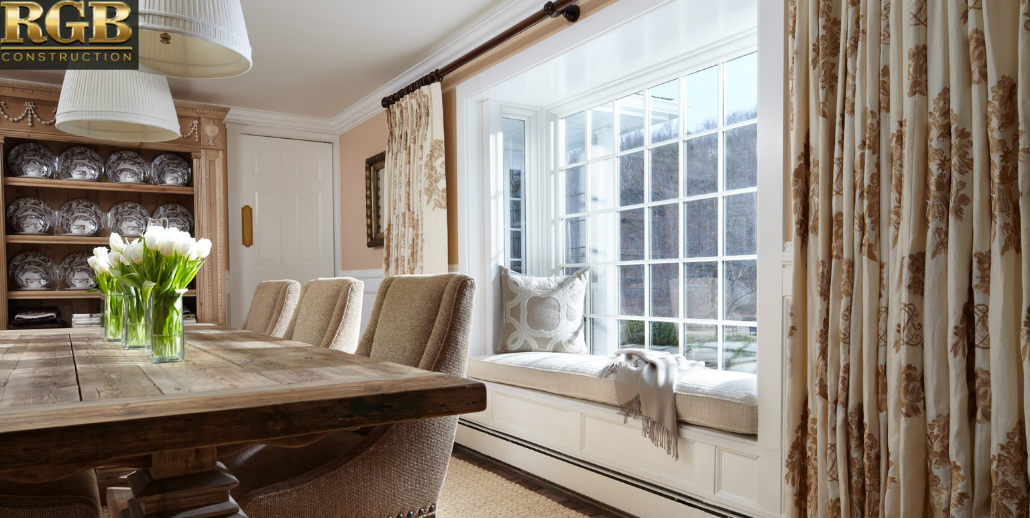Both vinyl and fiberglass are two popular window materials. They’re both sturdy and less costly than wooden frames but which is better, vinyl or fiberglass?
Vinyl Windows
Vinyl is a kind of plastic or what is known as polyvinyl chloride (PVC), which is the primary base material of vinyl windows. In order to strengthen or stiffen the frame, manufacturers usually include metal as an interior structural component. Vinyl is a strong material that’s resistant to water and literally maintenance free. It definitely handles the elements far better than its more expensive wooden counterpart.
The windows are beneficial because of their affordability, plus they are half the cost of wooden windows. Window companies can make vinyl windows to adjust to any opening. In addition, they are of value because of their construction. Energy efficiency is the key with their perforated fabrication, where air is captured to boost the R-value or the measure of resistance to the flow of heat.
Fiberglass Windows
Fiberglass is made up of glass and polyester resins that are melted and go through a heating and melting process. Glass mats or strands are infused with resins. The extreme heat pulls the glass into fine-spun fibers that are woven together. The results are unbending which makes the product malleable and easily shaped. Besides windows, fiberglass is used to create super strong materials for other products. When fiberglass is meant for window construction, it’s infused with different resins so it can be properly shaped. When you shop for fiberglass windows, you’ll be getting fiberglass or a composite of fiberglass.
Vinyl or Fiberglass?
Options for windows are steadily coming to the most affordable choices, which means that vinyl and fiberglass and its variations are what you have to choose from. You want to know which is the better choice to make a wise selection, so you must understand comparisons between the two to determine what will work for your situation. Here is a simple breakdown of the differences between the two.
Vinyl vs. Fiberglas Attributes
Vinyl – When cost is the basic factor, vinyl has the advantage. It’s lower in price and available most anywhere. It’s energy efficient and works well for less costly remodeling projects and renovation of older houses, plus it doesn’t need painting.
Other Advantages
- Easily purchased and self-installed
- When overall cost is the only identifier, vinyl wins over fiberglass
Disadvantages
- More limited in colors and color ranges
- Not constructed as well as fiberglass
- Can be painted but paint tends to peel away
- Very difficult to alter its texture
- Gradually loses resiliency over time
Fiberglass – When it comes to the appearance of a home and the strength of the windows, fiberglass windows are the favored choice. Though both vinyl and fiberglass can look attractive from a distance, fiberglass offers more possibilities when it comes to decorative aspects. Since fiberglass frames are somewhat narrower than vinyl ones, enough room is left on the surface of the glass for more exposure along with the allowance of light into a room.
Other Advantages
- Wide range of colors
- Considerably stronger than vinyl
- Energy-efficient from a lower profile standpoint
- Fiberglass can be painted in different colors
- Fiberglass can be textured to take on the look of real wood
- More durable structurally
- Provide insulation from noise transfer
- Longer lifespan than vinyl
- Better at providing insulation from noise transfer
- No warping at any time
- Low maintenance (unless you choose to paint)
Disadvantages
- Fiberglass is higher priced
- Difficulty with self-installations
- Recommend professional installation
- Must be ordered ahead of time
Other Fiberglass Value
It’s a given that fiberglass windows bring higher value to property than vinyl windows do. Windows aren’t necessarily a factor in the selling price of a home, but between fiberglass and vinyl, if a seller wants to command a higher selling price, fiberglass windows would be of value to the seller and the buyer.
Durability
They make both vinyl and fiberglass from substances that don’t decompose, nor are they subject to invasive pests. With that in mind, both materials have longevity and durability that is lasting, particularly compared to wood products that are organic and can rot and attract pests.
In addition, with fiberglass the glass within the frames expands and contracts simultaneously, which lessens any seal failures which can cause fogging and the buildup of condensation. With vinyl windows, you have corner seams that are fused or welded together, which can cause seal failures because of possible leakage.
Environmental Factors
Fiberglass is more environmental friendly as it consists of recycled glass; whereas vinyl is a plastic material (PVC) making it hard to recycle once it’s lost its usefulness.
Energy Efficiency
With the glass fibers that make up fiberglass, they don’t react to heat or cold and to expansion and contraction, which makes fiberglass a more efficient insulator. Fiberglass has a higher R-value than vinyl through both offer insulation value as they are made with openings that inhibit the transfer of thermal energy.
Low Maintenance
Vinyl and fiberglass are strong, low maintenance and resist dirt, mold and mildew. All it takes is a simple hosing off to remove most anything and cleaning the actual frames with warm water and a sponge. Both window types hold their own when it comes to battling the elements.
From the comparisons made here, it’s apparent that vinyl is the cheaper alternative and will benefit anyone on a fixed budget and in need of immediate window replacement. Fiberglass is probably better structurally of the two and falls between vinyl and wood in cost. So what should you do if you’re on the fence about either? If you need more detailed information concerning vinyl and fiberglass windows, complete the online contact form and a representative will get back to you with the answers you need to make an informed decision.








